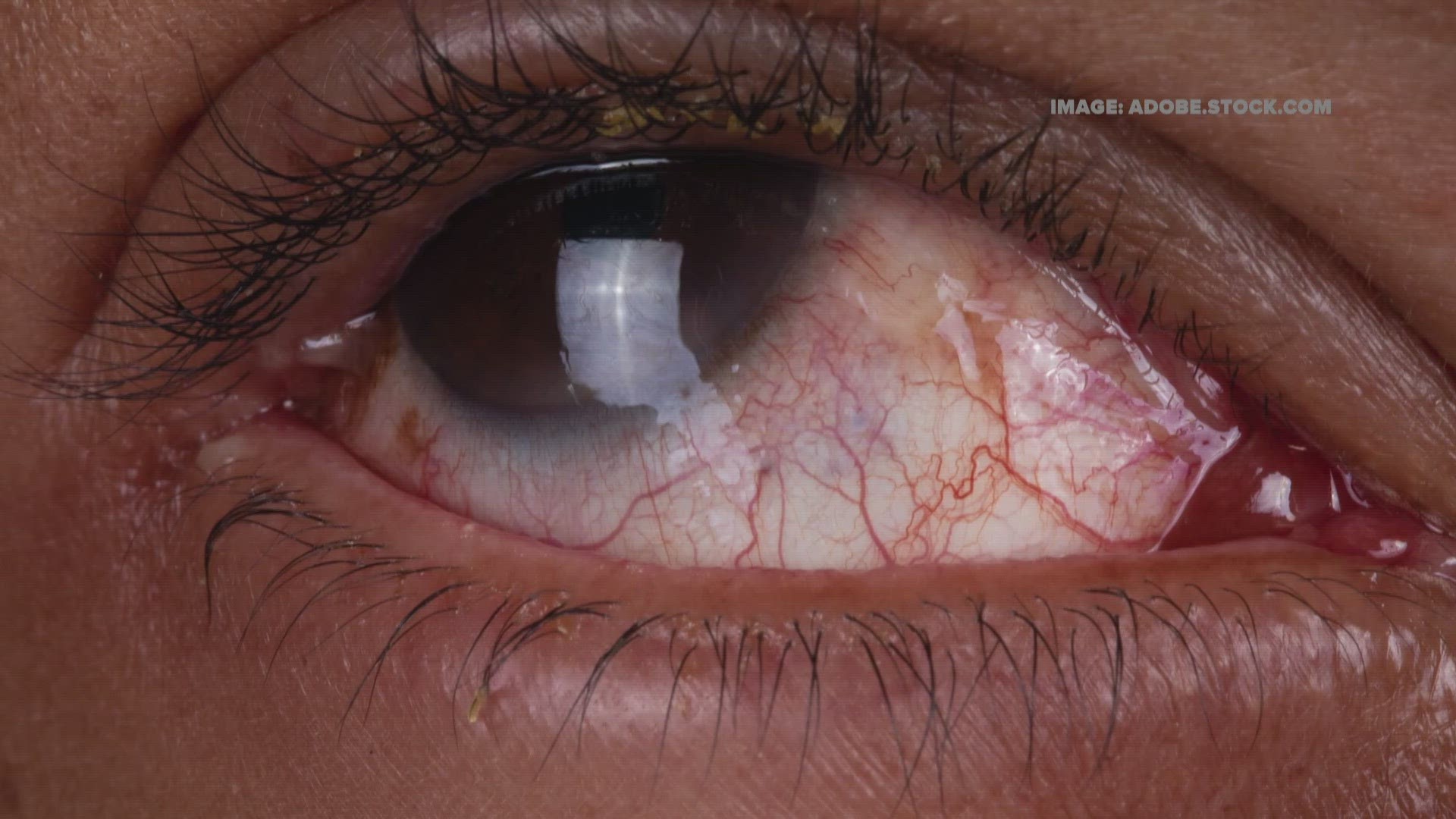SUMMERFIELD, N.C. — This is the time of year when the pink eye is in full effect.
WFMY talked with a pediatrician from a few weeks ago who said he's seen a rise in cases among children in the last year.
Novant Health Northern Family Medicine Physician Assistant Meredith Chapman said there are typically more cases during the winter months, and it's not just being spread among children but adults too.
"For our little ones, it's super important that we're keeping them safe, a lot of times they are giving mom dad, and grandparents," said Chapman. "To anybody who does get infected, make sure that you are washing your hands, not sharing any towels or napkins or anything with people who are infected."
Chapman said there are two different eye infections to look out for this time of year: bacterial and viral conjunctivitis.
Both are uncomfortable, highly contagious, and spread through direct contact.
A bacterial infection is when a thick yellow discharge emerges from one of your eyes.
In this case, you will need to see a doctor and get a prescription. Then 24 hours after starting medication, you can return back to work, school or everyday life.
The viral infection comes with nasal congestion, sore throat, or a fever. This is more of a water discharge with redness and irritation.
Chapman said ibuprofen, a warm and cold compress should help treat it and it will go away on its own.
In this, you're contagious as long as your fever persists and can typically return back to work after three to five days.
"For bacterial conjunctivitis, you are cleared to return back to work or school within 24 hours of starting a topical antibiotic," she said. "For viral, you are contagious during the duration of the virus so if you're running a fever, obviously you need to be staying home and just doing contact precautions for the week that you are infected."
It's also allergy season.
Chapman said there are ways to notice a difference.
"The staple with allergic conjunctivitis that you will not see in viral or bacterial is the itching," said Chapman. "The viral and bacterial will have some irritation, but the allergic is true for eye itching. People say their eyes can't stop itching."
Her advice is to stay home and consult a doctor if you notice any irritation.

